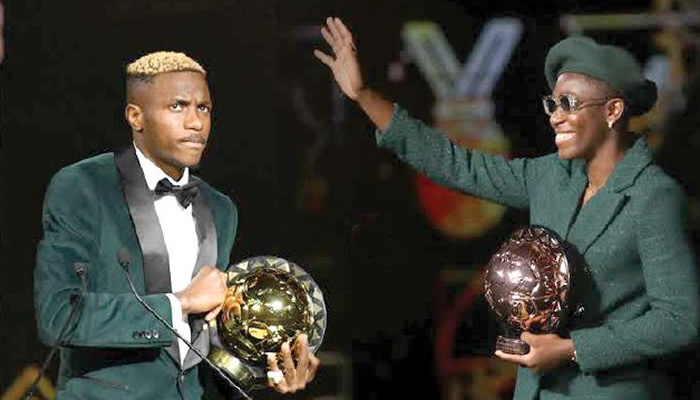As Nigeria celebrates its 64th Independence Day, Abiodun Adewale reflects on the rich and multifaceted sports history of the nation, particularly during the past year. The story of Nigerian sports is one of triumphs and setbacks, with moments that have cemented the country’s position in the athletic arena. From cricket to boxing, Nigeria made headlines in various sports, exemplifying the country’s potential and spirit in competition. The celebration of the country’s independence also serves as a reminder of the journey Nigerian athletes have traveled since colonial times, leading them through valleys of despair and peaks of glory.
Among the highlights of Nigerian sports in the past year is the success of the women’s U-19 cricket team, popularly known as the Junior Yellow Greens. They achieved qualification for the U-19 Women’s Cricket World Cup by excelling in a recent tournament in Rwanda, despite their final match against Zimbabwe being canceled due to rain. This moment marks a significant achievement for women’s cricket in Nigeria as it is only the second time the country has qualified for a World Cup at this level, following the men’s U-19 team’s successful qualification in 2019. This milestone not only brings joy to cricket fans but also symbolizes the rise of ‘lesser-known sports’ in Nigeria’s athletic panorama, broadening the scope of the nation’s sporting achievements.
In the realm of para-sports, the achievements of Nigerian athletes shined brightly, even at the Paralympic Games in Paris 2024. Though the team recorded a modest medal haul, the individual performances were inspirational, especially that of Folashade Oluwafemiayo, who broke world records in para-powerlifting. Her landmark lift of 166 kg made her the first para-athlete to accomplish such a feat. Additionally, Bolaji Eniola made history by winning the first badminton medal for Africa at the Paralympic level. These accomplishments highlight the resilience and capabilities of athletes with disabilities, showcasing their unwavering determination to succeed on an international stage.
Boxing brought another exciting achievement to Nigeria, with Elizabeth Oshoba winning the WBC silver featherweight title in January, thus becoming the first female Nigerian boxer to clinch a world championship. This victory not only signifies a personal triumph for Oshoba but also opens new doors for women’s boxing in Nigeria, inspiring a generation of young female athletes. Moreover, Nigerian football continued to evolve with standout performances by players like Ademola Lookman, who made substantial contributions to his club and national team. Lookman’s hat-trick that led Atalanta to win their first European title serves as a powerful reminder of the talents Nigeria continues to produce in the sport.
Despite these successes, the year also witnessed notable low points in Nigerian sports, particularly at the Paris Olympics, where the country faced disappointment with zero medals from its 88-man contingent. This marks a troubling chapter in Nigeria’s Olympic history, revealing the uncertainties and challenges that athletes confront in their pursuit of success on such a prestigious platform. The struggles faced by sprinter Favour Ofili further highlighted systemic issues within Nigerian athletics when she was inexplicably omitted from the women’s 100m event despite having qualified. The Minister of Sports Development has since established an investigative panel to address these allegations, which underlines the pressing need for transparency and accountability in the management of sports in Nigeria.
The deterioration of sporting facilities also represents a significant concern as many once-thriving centers of athletic excellence have fallen into neglect. Only the Godswill Akpabio Stadium in Uyo remains approved by CAF to host matches, with prominent venues like the National Stadium in Surulere remaining abandoned. Additionally, Nigeria’s drubbing in recent U-17 championships indicates a worrying trend in developing the next generation of football talent. With the apparent shortfall of young players breaking through competitive ranks, there is an urgent call for rejuvenation in youth development programs. Furthermore, incidents of doping violations, including bans for prominent athletes like Divine Oduduru and Cynthia Ogunsemilore, tarnish Nigeria’s athletic reputation and underscore the need for stricter adherence to anti-doping regulations.
In conclusion, Nigeria’s 64th Independence Day encapsulates a year of notable achievements against a backdrop of challenges. The juxtaposition of highs and lows in sports mirrors the broader narrative of the nation; a testament to resilience, even amid disappointment and systemic difficulties. As the nation looks ahead, there is a relentless hope that the budding success in lesser-known sports and the fight for accountability will help maintain Nigeria’s dynamic presence on the global sports stage. The future holds promise as more athletes emerge, facilities are rehabilitated, and the system is overhauled to nurture talent and restore glory to Nigerian sports. This journey reflects a nation steadfast in its commitment to strive for excellence, much like its quest for independence over six decades ago.


